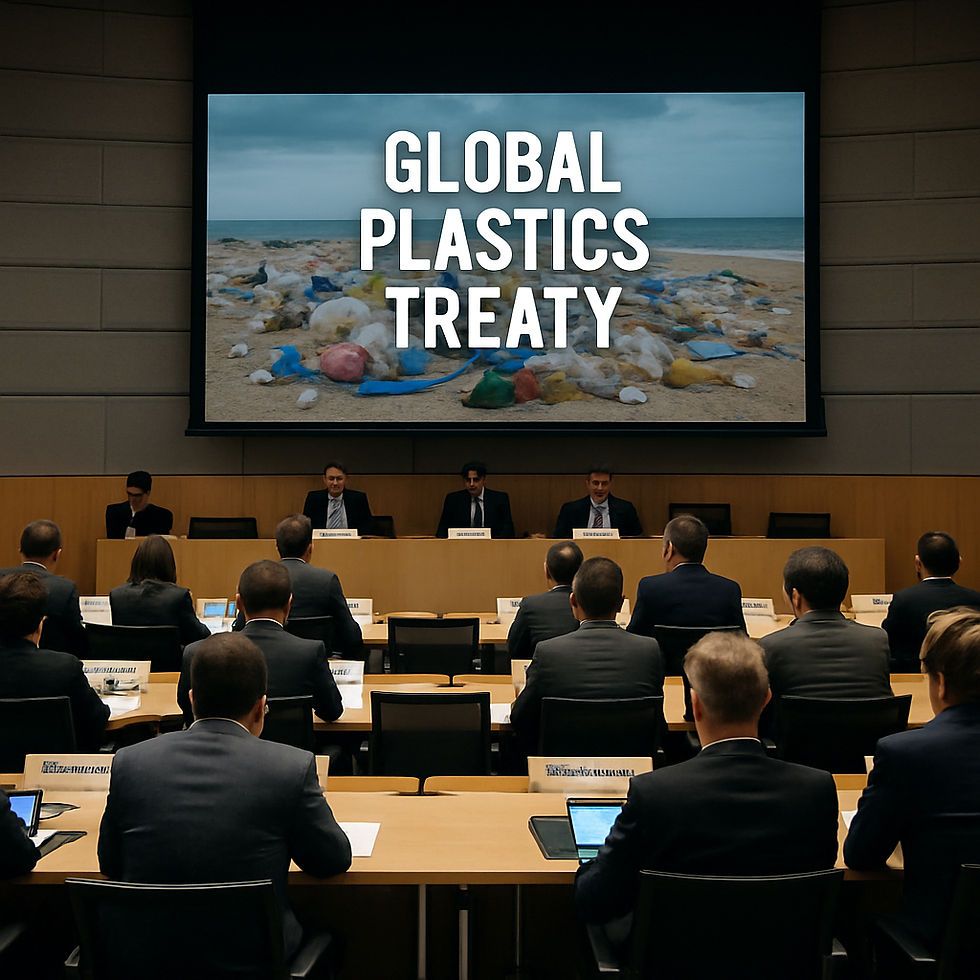Global Plastics Treaty Gains Momentum: New Working Group to Support National Action Plans
- Trending Innovators
- Aug 4
- 2 min read
Trending Innovators | 4 August 2025

In a significant step forward for international environmental policy, negotiators at the Global Plastics Treaty talks in Geneva have agreed to establish a dedicated working group to assist countries in developing and implementing national action plans. This initiative marks a practical shift from high-level commitments to coordinated, measurable strategies aimed at reducing plastic pollution worldwide.
The working group was announced during the fourth session of the Intergovernmental Negotiating Committee (INC-4), part of an ongoing effort to deliver a legally binding treaty under the guidance of the United Nations Environment Programme (UNEP). The treaty, which seeks to tackle plastic pollution across its entire lifecycle, is expected to be finalised by the end of 2025.
A Step Towards Coherent National Strategies
Given the diverse political and economic contexts of participating nations, a centralised support mechanism was seen as essential. The new working group will provide countries with technical advice, policy frameworks and implementation tools tailored to their specific needs. This includes assistance with drafting legislation, designing monitoring systems and identifying funding avenues.
A UNEP representative stated at the launch: “This is about turning international ambition into measurable action."
The group will also serve as a platform for knowledge exchange, enabling countries to learn from successful initiatives and share innovation in waste management, packaging alternatives and circular economy practices.
Addressing a Global Crisis
The urgency of the initiative is underscored by forecasts that plastic production could double by 2040 unless decisive action is taken (UNEP, 2022). While many nations have expressed support for the treaty’s goals, few possess the infrastructure or technical capacity to independently design robust plastic reduction policies.
Experts in sustainability and public policy have welcomed the move. Materials scientist focused on biodegradable polymers, noted, “Providing direct support to nations is crucial. The treaty’s strength lies in implementation. Without real national plans, global targets risk becoming empty promises.”
A Roadmap to Enforcement
Participating countries will be expected to submit draft action plans ahead of the final negotiation session in Busan, South Korea, later this year. The working group’s role will be to guide and accelerate this process, helping governments to set targets, measure progress and engage with industry stakeholders.
Civil society organisations and environmental campaigners have cautiously praised the development, calling it a critical step in ensuring the treaty delivers lasting impact.
Follow Trending Innovators for more clear and reliable insights into the technologies shaping our world.



Comments